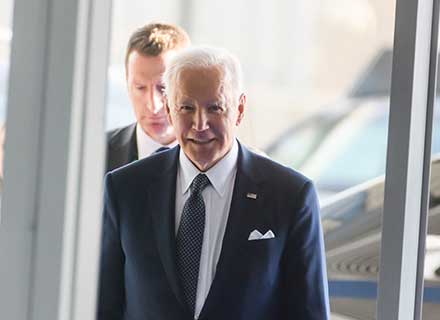US President Joe Biden met Saudi Crown Prince Mohammed bin Salman to restore the relations between the US and Saudi Arabia. Both parties have expressed their commitment to ensuring the stability of the global energy markets.
Experts said, countering the rising influence of Iran, Russia, and China, energy interests have pushed Biden to travel to the Saudi Kingdom, his first visit to the Middle East since becoming the US President.
The US President left the Middle East without getting an immediate commitment from Saudi Arabia to boost oil output or public support for U.S. efforts for a regional security axis that would include Israel.
The US is eager to see Saudi Arabia and its Organization of the Petroleum Exporting Countries(OPEC) partners boost oil production, as the high gasoline prices have fuelled inflation in the United States to the highest in 40 years.
The US National Security Adviser Jake Sullivan had low expectations of the meeting, saying he did not expect Saudi Arabia to boost oil output immediately and would instead look at the outcome of an OPEC+ meeting on August 3.
“I don’t think you should expect a particular announcement here bilaterally because we believe any further action taken to ensure that there is sufficient energy to protect the health of the global economy, it will be done in the context of OPEC+,” Jake Sullivan said.
Biden came to Saudi Arabia hoping to convince the OPEC, but the Kingdom held firm on its strategy that it must operate within the framework of the OPEC+ alliance, which includes Russia, and not act unilaterally.
Spare capacity within OPEC is running low, with most producers pumping at maximum capacity. It is unclear how much extra supply Saudi Arabia could bring to the market and how quickly.
OPEC+ decided last month to increase output targets by 648,000 barrels per day in August, ending record production cuts that it brought at the height of the COVID-19 pandemic to counter collapsing demand.
Energy Deals
Biden’s visit resulted in the signing of 18 partnership agreements in fields that include energy, communications, space, and healthcare.
Among those were agreements in clean energy projects, nuclear energy, and uranium, according to Saudi state news agency SPA, as well as deals with US aerospace and defense firms Boeing and Raytheon and healthcare companies Medtronic, Digital Diagnostics, and IQVIA.
Israel-Saudi relations
Gulf OPEC members are investing in renewable and clean energy while also stressing the continued importance of hydrocarbons for global energy security at a time of growing calls for a shift away from fossil fuels.
Washington and Riyadh also agreed on the importance of stopping their mutual foe Iran from acquiring a nuclear weapon further deterring its interference in the internal affairs of other countries.
The statement said Biden affirmed the United States’ continued commitment to support Saudi Arabia’s security and territorial defense, and facilitating the Kingdom’s ability to obtain necessary capabilities to defend its people and territory against external threats.
Meanwhile, the U.S. and Israel signed a joint pledge to deny nuclear arms to Iran, a show of unity by allies long divided over diplomacy with Tehran.
The declaration was part of Biden’s efforts to rally regional allies around U.S. efforts to revive the 2015 nuclear pact with Iran.
As Iran signed a deal with six major powers to limit its nuclear program, to make it harder to obtain a weapon in exchange for relief from economic sanctions.
In 2018, then-US President Donald Trump pulled the United States out of the pact, saying it was insufficient to keep Iran from developing nuclear weapons, as Saudi Arabia and Israel were not happy with the deal brokered by former President Barack Obama’s administration.
Biden assured that the United States is willing to use force as a last resort if talks fail and Iran continues to develop nuclear weapons. While Tehran denies it has been seeking nuclear weapons.
Both Saudi Arabia and the UAE want regional concerns over Iran’s missile program and regional proxies to be addressed soon

